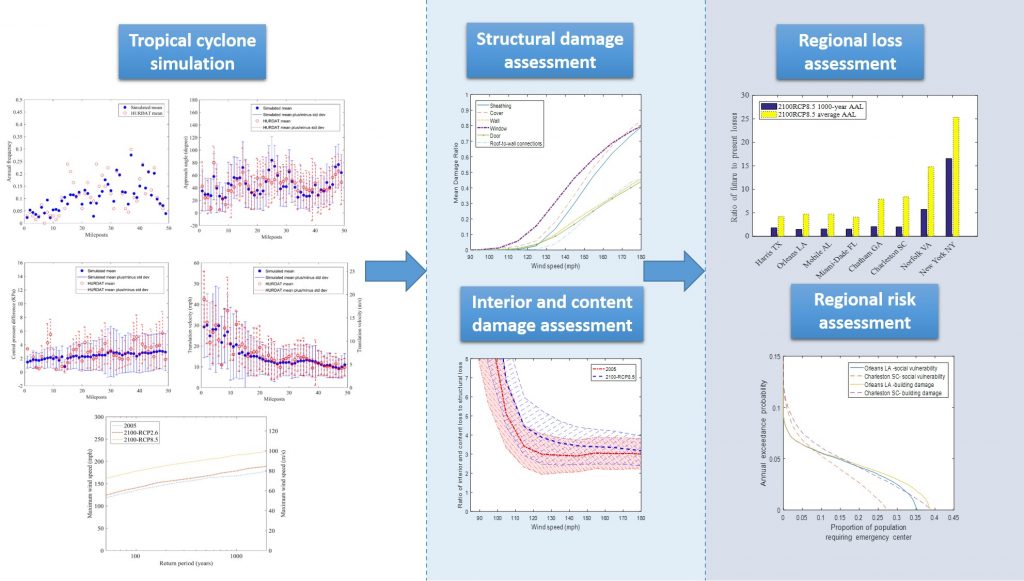Hurricane Risk Assessment in Changing Climate
We investigate the impact of climate change on the hurricane risk for residential buildings in the US southeast coastal region. By using nonlinear autoregressive network with external inputs (NARX), we have established relationships between climate variables and hurricane parameters to understand hurricane characteristics under projected climate conditions. Climate variables we adopted to predict hurricane characteristics include regional sea surface temperatures and regional relative humidity, and the impact on hurricane characteristics is studied with respect to the central pressure difference (CPD) and the ratio of the number of major hurricanes to the number of total hurricanes (RMH). By using NARX, we predict the future hurricane characteristics for near and long-term projections considering a climate scenario (RCP8.5) by the IPCC. To estimate hurricane risk in change climate conditions, using the projected hurricane characteristics, we simulate hurricane track for four study regions along the US southeast coast, and associated economic losses are estimated using HAZUS-MH. The result shows that the estimated loss due to hurricane wind damage under changing climate conditions dramatically increases in all study regions. Ongoing research is to conduct hurricane risk assessment associated with hurricane induced flood in change climate conditions.
Climate Change Impact on US Hurricane Risk to Residential Buildings
Hurricanes are one of the most destructive natural hazards impacting the United States. Since hurricanes can form and propagate only when suitable atmospheric conditions are met, climate change is expected to impact the hurricane patterns and their corresponding risks. In our study, we investigate the potential impact of climate change on future hurricanes and the corresponding risks for residential buildings. The major objectives of our research are: (1) Develop hurricane scenarios for present and future using a model capable of capturing the impact of climate on the hurricanes (Pant and Cha 2018, 2019). (2) Develop a hurricane loss assessment framework considering effect from both hurricane wind and rainfall for residential buildings (Pant and Cha 2019). (3) Evaluate the impact of climate change on the regional hurricane loss throughout the US coastal regions. (4) Assess the climate-dependent regional hurricane risk across the US coastal regions considering social vulnerability. Our research indicates that the future hurricane risk could be much higher than the present and the degree of increase differs from location-to-location.


